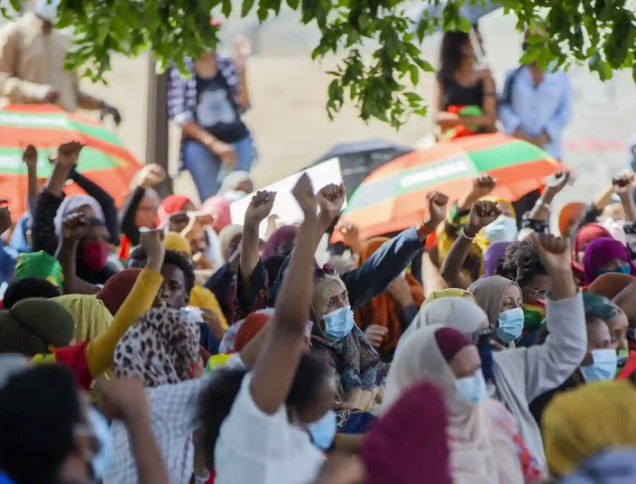

Ethiopia’s escalating conflict with Tigray’s ruling party reduces the frightening and often violent tension between Prime Minister Abiy Ahmed and the more restrained corners of the ethnically diverse nation, which he vows to unite.
Abiy won the Nobel Peace Prize last year for clashing with Eritrea, Ethiopia’s longtime enemy.
But internally, he has faced many challenges to his rule, most notably in Tigray where an ongoing armed conflict threatens widespread stability in Africa’s second most populous country.
Here are the most prominent flashpoints:
Clash with Tigray
Abiy said this week that he had commanded an army in a Northern Territory Tigre, once dominated by Ethiopian politics, in response to an attack on a ruling party, the Tigray People’s Liberation Front (TPLF), a federal military force.
The TPLF denied the attack and accused Abiy of warming up and fabricating the story to justify the attack. Flights have been blocked in Tigray and local communications, making it difficult for the media to independently verify both sides of the story.
The downward spiral for a possible war follows a long and bitter feud between Abi and the TPLF, with officials complaining that they were sidelined and sacrificed for the country’s problems under their rule.
Tigresses make up six percent of Ethiopia’s population, but were once all powerful.

He led the struggle that provoked the Communist Dug regime in 1991 and dominated the country’s ruling coalition before anti-government demonstrations brought Abiy to power in 2018.
The TPLF has increasingly acted like the leaders of the independent state, defying Abi and challenging her right to rule her northern domain.
In September, the region held its parliamentary elections, ignoring a federal decision to postpone all elections due to the coronovirus epidemic and warned Abiy that any vote would be invalid.
The TPLF formally became an opposition party last year when it refused to merge the ruling coalition’s single party with Abiy.
Abiy is the first leader of Ethiopia from the country’s largest Oromo ethnic group.
But he is far from universally beloved in the Oromia region, which surrounds the capital Addis Ababa.
Oromo nationalists maintain that Abiy has been a poor champion of the group’s interests and has not done enough to address his long-standing feelings of political and economic marginalization.
And human rights groups have accused security forces under Abiy of adopting repressive tactics in Oroma, targeting the Ormo Liberation Army (Ola), an armed group targeting murders, bombings, bank robberies and an armed group Is criticized for. Kidnapped.
This month, the government blamed the OLA for killing at least 32 people in a national human rights body called “Genocide” in Orama. Amnesty International killed 54 people.
The area also witnessed horrific violence following the fatal shooting of Oromo pop singer, Hachalu Hundessa
After his death, more than 160 people were killed in inter-ethnic violence and changes with security forces.
Amnesty said at least 20 people were killed in August when security forces opened fire on protesters in Oromia, demanding that opposition leaders and others detained during the violence be freed.

Splitting south
Ethnic groups in Ethiopia’s diverse southern countries, nationalities and peoples’ territories (SNNPR) are also facing Abiy as they demand expanded rights.
In the early 1990s, Ethiopia was divided into nine territories and two administrative states as part of a federal system designed to provide comprehensive ethnic self-governance.
Although about 10 groups in the South have long sought to constitute their territories, permission has been granted under the Constitution.
These bids for autonomy gained new momentum after Abiy took office in April 2018 and pushed, at least initially, to liberalize Ethiopia’s democratic space.
The people of Sidama, in a referendum last November, overwhelmingly supported the creation of the country’s 10th – a new region.
In the Volita zone, which wants to follow Sidama’s leadership, but has not yet scheduled its referendum, at least 17 people were killed in August when police detained leaders involved in the campaign, Which provoked protests and was a fatal reaction to the security forces.